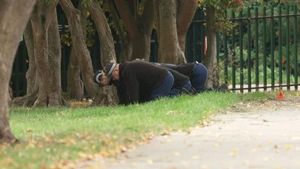On April 28, 2025, a significant strike action will take place across France as liberal doctors, medical students, and interns unite in opposition to a controversial proposed law that seeks to regulate the establishment of medical practitioners. This unprecedented move, spearheaded by several medical unions, marks a pivotal moment in the ongoing struggle over healthcare access and the distribution of medical professionals in the country.
The strike, organized by MG France and supported by various medical organizations, calls for the closure of medical practices nationwide. Demonstrations are also scheduled in major cities including Paris, Marseille, and Toulouse. The aim is to voice strong opposition against the Garot bill, which has been criticized for undermining the autonomy of medical professionals.
MG France has urged its members to suspend all activities in their practices starting on Monday, April 28, 2025. In a further escalation, they are advocating for a boycott of the Service d'accès aux soins (SAS) and a strike of the on-call services for ambulatory care (PDSA). The national strike notice officially begins at 8 AM on the same day.
In a show of solidarity, the Syndicat Représentatif Parisien des Internes de Médecine Générale is calling upon strikers to gather outside the Panthéon in Paris on April 29, 2025, at 2 PM to demonstrate against the proposed legislation. Interns are required to submit a strike notice 48 hours in advance to participate in the protest.
Notably, Philippe Cuq, co-president of l'Union Avenir Spé Le Bloc, emphasized the complexities of the situation, stating, "We, established doctors, support young doctors, but each will react to this call according to their specialty. When operations are scheduled, it’s not easy to stop." This sentiment reflects the delicate balance between advocating for change and ensuring patient care.
Similarly, Sophie Bauer, president of the Syndicat des médecins libéraux (Sml), expressed concern over the potential consequences of closing medical practices. She warned, "If practices close in some territories, there could be deaths. We are not calling for an unlimited closure of practices." These statements underline the gravity of the situation and the potential risks involved.
The Garot bill, named after its initiator Guillaume Garot (PS), aims to tackle the issue of medical deserts in France, a problem that has left millions of citizens without adequate access to healthcare. The flagship article of the bill was adopted by the Assemblée nationale on April 2, 2025, and further examination of the legislation is scheduled for early May.
Under the proposed law, both liberal and salaried doctors would be required to seek approval from the Agence régionale de santé (ARS) before establishing their practices. In areas with a shortage of healthcare providers, approval would be granted automatically. However, in regions with sufficient medical coverage, a new practitioner could only set up shop if an existing doctor vacates their position.
This regulatory approach has been met with fierce opposition from medical professionals who argue that it threatens the attractiveness of liberal medicine, which they view as a crucial pillar of the healthcare system. Lucas Poittevin, a representative of the medical community, summarized the sentiment by stating that the proposal would severely undermine the appeal of practicing medicine in a free market.
In response to the growing discontent, the government has proposed alternative measures to address the issue of medical deserts. On April 25, 2025, Prime Minister François Bayrou announced plans to mandate that healthcare professionals dedicate up to two days per month to consultations in underserved areas, offering financial compensation as an incentive. This initiative aims to redirect nearly 30 million consultations towards regions in need.
However, many in the medical community view this proposal as insufficient and potentially punitive. Doctors who refuse to comply with the mandate could face penalties, further inflaming tensions between the government and healthcare providers. The unions have maintained their call for protests, asserting that the Garot bill, even with amendments, constitutes a significant infringement on their professional freedom.
The backdrop to this conflict is alarming; in 2024, approximately six million French citizens were without a primary care physician, a situation deemed unacceptable by health authorities. Prime Minister Bayrou has described medical deserts as "the most serious symptom of territorial division," highlighting the urgency of addressing healthcare disparities.
As the strike approaches, the stakes are high. The medical community’s resistance to the Garot bill reflects a deep-rooted concern over the future of healthcare in France. With the potential for widespread closures of medical practices and significant disruptions to patient care, the government faces a critical moment to reassess its approach to healthcare reform.
In conclusion, the unfolding events surrounding the strike and the proposed legislation underscore the complexities of balancing healthcare access and the rights of medical professionals. As doctors prepare to take a stand, the outcome of this conflict could have lasting implications for the future of healthcare in France.




